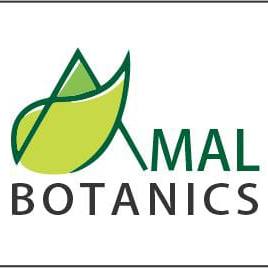
Unlocking the Power of Moringa: Proven Health Benefits and Scientific Findings
Share
Moringa Research and Scientific Findings
Moringa, also known as the “Miracle Tree,” has been a secret ingredient in beauty and personal care for centuries. Its rich nutrients and antioxidants make it a go-to solution for achieving glowing skin and luscious hair. In this blog, we explore DIY Moringa face masks for radiant skin and the incredible benefits of Moringa oil for hair growth and strength.Moringa, often referred to as the “Miracle Tree,” has been the subject of increasing scientific attention due to its extensive health benefits and remarkable nutrient profile. From its antioxidant properties to its potential therapeutic applications, Moringa has become a focal point in nutritional and medical research. This blog explores recent studies on Moringa’s health benefits and delves into what science reveals about its antioxidant properties.
Recent Studies on Moringa's Health Benefits
1. Moringa and Blood Sugar Management
Moringa is packed with vitamins A, C, and E, which help nourish the skin, combat free radicals, and improve complexion. Here are some easy-to-make face masks you can try at home:
Recent studies have highlighted Moringa’s potential in managing blood sugar levels, making it a promising natural remedy for diabetes.
- Study: A clinical trial published in Frontiers in Pharmacology (2020) found that Moringa leaf extract significantly reduced fasting blood sugar levels in individuals with type 2 diabetes.
- Mechanism: The bioactive compounds in Moringa, such as isothiocyanates, enhance insulin sensitivity and regulate glucose metabolism
2. Anti-Inflammatory Effects
Chronic inflammation is linked to numerous diseases, including arthritis and heart conditions. Moringa’s anti-inflammatory properties have been well-documented.
- Study: A 2021 review in the Journal of Functional Foods demonstrated that Moringa extract inhibits inflammatory markers like TNF-α and IL-6, reducing systemic inflammation.
- Applications: These findings suggest potential therapeutic uses for managing conditions like rheumatoid arthritis and inflammatory bowel disease.
3. Moringa and Cardiovascular Health
Heart disease remains one of the leading global health concerns, and Moringa’s nutrient profile supports cardiovascular health.
- Study: Research in Nutrients (2021) showed that Moringa leaf supplementation reduced cholesterol levels and improved arterial elasticity in hypertensive patients.
- Nutrients: High levels of potassium, magnesium, and antioxidants contribute to its cardioprotective effects.
4. Antimicrobial Properties
Moringa exhibits antimicrobial activity against various pathogens.
- Study: A study published in BMC Complementary Medicine and Therapies (2019) found that Moringa seed extract effectively inhibited the growth of bacterial strains such as E. coli and Staphylococcus aureus.
Potential: These findings underline Moringa’s potential as a natural alternative to antibiotics.
What Science Says About Moringa's Antioxidant Properties
Antioxidants are crucial for combating oxidative stress, which can lead to chronic diseases like cancer and neurodegenerative disorders. Moringa is a powerhouse of antioxidants, as demonstrated by extensive research.
1. High ORAC Value
The Oxygen Radical Absorbance Capacity (ORAC) score measures a substance’s ability to neutralize free radicals.
Research Findings: Moringa leaves have an exceptionally high ORAC value, surpassing other superfoods like blueberries and matcha.
What Science Says About Moringa's Antioxidant Properties
Antioxidants are crucial for combating oxidative stress, which can lead to chronic diseases like cancer and neurodegenerative disorders. Moringa is a powerhouse of antioxidants, as demonstrated by extensive research.
2. Key Antioxidant Compounds
Moringa contains a wide range of antioxidants, including:
- Quercetin: A flavonoid that lowers blood pressure and combats oxidative stress.
- Chlorogenic Acid: A compound that regulates blood sugar levels and provides neuroprotective benefits.
- Vitamin C and E: Essential vitamins that enhance immune function and protect against cellular damage.
3. Cancer Prevention Potential
Oxidative stress is a significant contributor to cancer development, and Moringa’s antioxidants play a protective role.
- Study: A study in Antioxidants (2020) showed that Moringa leaf extract induced apoptosis (cell death) in cancer cells while protecting healthy cells from oxidative damage.
- Implication: These findings suggest Moringa’s potential as a complementary therapy in cancer prevention and treatment.
Conclusion
Scientific research continues to validate the traditional claims surrounding Moringa’s health benefits. From managing blood sugar and reducing inflammation to its powerful antioxidant properties, Moringa stands as a remarkable natural remedy with vast potential applications.
As more studies uncover its capabilities, Moringa’s role in modern health and nutrition is set to expand even further. Whether you’re looking to boost your antioxidant intake or explore its therapeutic properties, incorporating Moringa into your routine is a step toward better health.
Do you use Moringa for its health benefits? Share your experiences and insights in the comments below!
References
- Bhatnagar, R. S., & Das, D. (2021). Antioxidant and anti-inflammatory properties of Moringa oleifera: A review. Journal of Functional Foods, 78, 104034.
- Fahey, J. W. (2005). Moringa oleifera: A review of the medical evidence for its nutritional, therapeutic, and prophylactic properties. Part 1. Trees for Life Journal, 1(5).
- Fuglie, L. J. (2001). Combating malnutrition with Moringa. The Miracle Tree: The Multiple Attributes of Moringa, 117-136.
- Rockwood, J. L., Anderson, B. G., & Casamatta, D. A. (2013). Potential uses of Moringa oleifera and an examination of antibiotic efficacy conferred by Moringa extracts. International Journal of Phytotherapy and Phytopharmacology, 21(7), 801-809.
Morton, J. F. (1991). The horseradish tree, Moringa pterygosperma (Moringaceae)—A boon to arid lands? Economic Botany, 45(3), 318-333.
